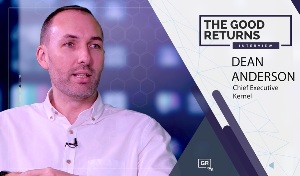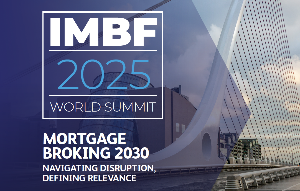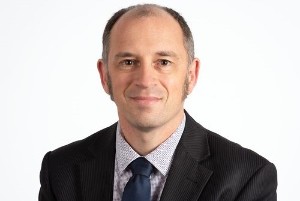
Independent advisers across the country are looking to grow and build their businesses, according to a survey by Kernel Wealth Management.
There’s a strong sense of optimism and a general sense of opportunity as well as problems to be solved, Kernel Wealth founder and chief executive Dean Anderson told GRTV.
But right now, only 13% of respondents’ books are more than 90% full, with a large percentage at 50% to 70%.
“There’s capacity out there and the ability to service more clients”, Anderson says.
Asked about client size, a quarter of respondents said between 26% and 50% of their client base were sub-scale.
Most tend to have a portion of their client base that is not efficient, that they’re probably not making a return on once they assess the time and hours spent looking after them.
Anderson says that means either culling and becoming more vigorous about taking on clients or using technology to service them, make a better return, and create long term value.
He says a paper by US management consultancy Oliver Wyman on the future of financial advice flags that the real opportunity isn’t scrambling to compete for the million and five million dollar clients. Rather the majority of revenue in the future will come from the “mass affluent” market - the typical mum and dad investors.
Changing hands
In New Zealand, that means more than $1 trillion of wealth will undergo inter-generational wealth transfer in the next 15 years, says Anderson.
“Most of those assets are property, and those people will want to speak to someone about how to manage that inheritance.”
Servicing this market will require a hybrid model.
“You need to be looking at the technology you use, and your processes day-to-day, but also the way you interact and engage with your clients.”
Where will the technology come from and how will advisers access it?
There’s two pieces of the puzzle, he says.
“One is leveraging different technologies to run your day-to-day processes internally - CRM, mailing processes, customer data and insights. Then there’s the interface - how do you onboard a client, what sort of platforms are you using for them?”
He says Kernel has been looking at how to support advisers with a platform-led solution to better deliver an outcome and create value for that mass affluent market.
“I think what people need to understand is the value proposition for those clients.” The ones receiving inheritances will value having a relationship with somebody who can help them unpick those emotional questions and give them a sense of stability. They don’t care about different fund managers and different ratios of the portfolio, he says.
“You need to do that with a technology-based solution though to do that at scale and make it accessible.”
Scalability
Another finding of the survey was that advisers spent an average of nine hours onboarding a client but some were as high as 30.
“That is not a scalable business,” says Anderson. “If you’re spending an entire day to onboard one client, which is potentially sub-scale, then you’re not going to grow.”
Trends to watch
Post regulatory change, advisers are a hungry group who are looking to grow and hire more advisers.
What will be interesting, says Anderson, is where new advisers will come from because although many firms are wanting to hire, there aren’t a lot of advisers out there.
In another trend, 75% of advisers said they planned to increase the use of unlisted PIEs for the new financial year.
“I think now there is a really strong understanding of looking at the total cost of investment; tax leakage, PIE benefits.
“So with the trustee rate changes and RWT rate, top tax rate at 39% now, and we’re seeing a lot of advisers saying, ‘OK, what do I need to do for the new financial year?’ and you do need to make those changes by moving out of AUTs or offshore funds basically.”
Three quarters of respondents said they are proactively thinking about tax and the cost of tax and their clients’ net returns.
Anderson says the tax cost can be huge; up to 50, 70, 80 basis points of tax costs every year that people are missing out on. “And that’s before considering the PIE benefits of paying at 28 versus a 39% trustee rate.”
Next year Kernel will be running its first conference for advisers on February 27. Topics will include how to optimise tax and also practice management, marketing, building the business and particularly the use of technology in attracting and servicing the mass affluent market.





Comments
No comments yet.
Sign In to add your comment